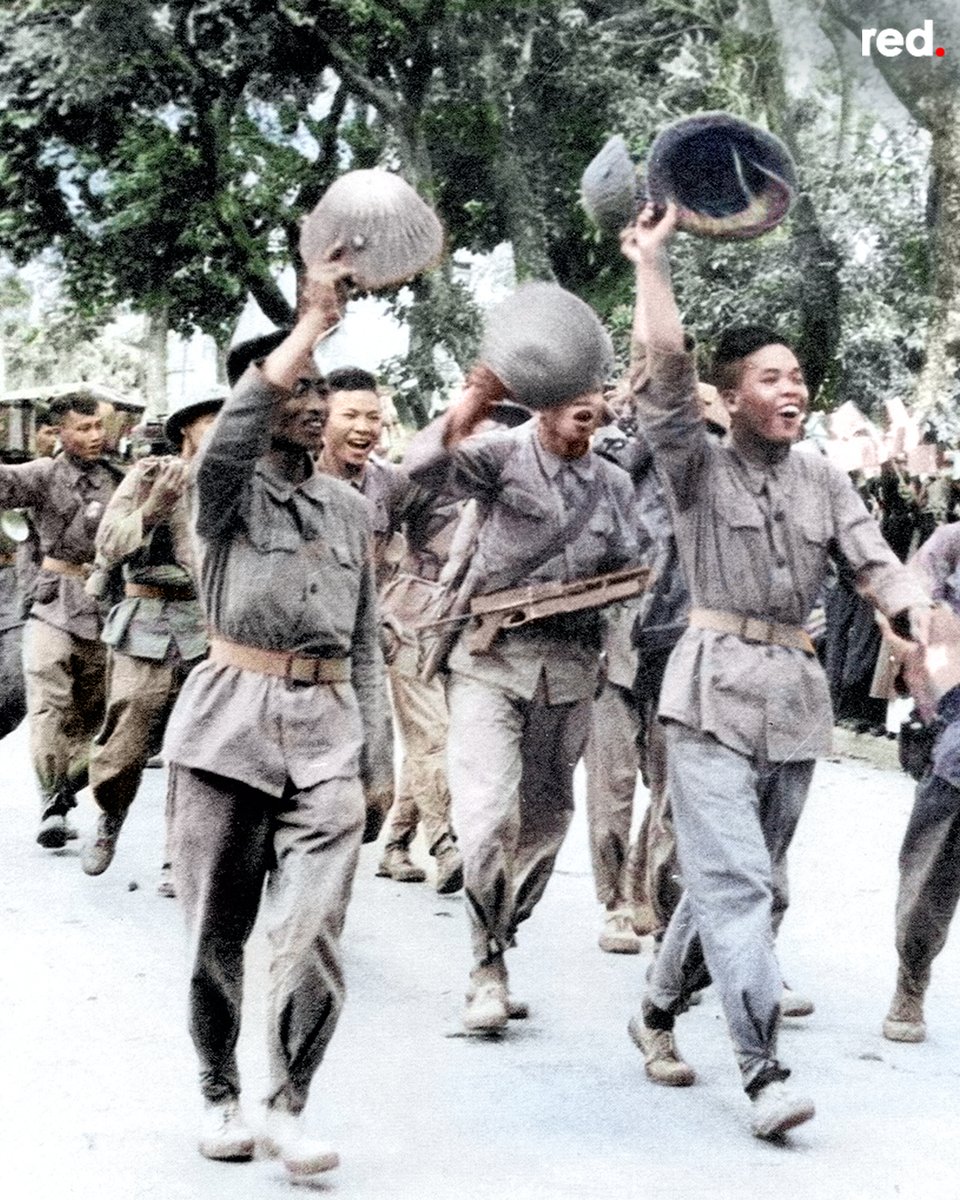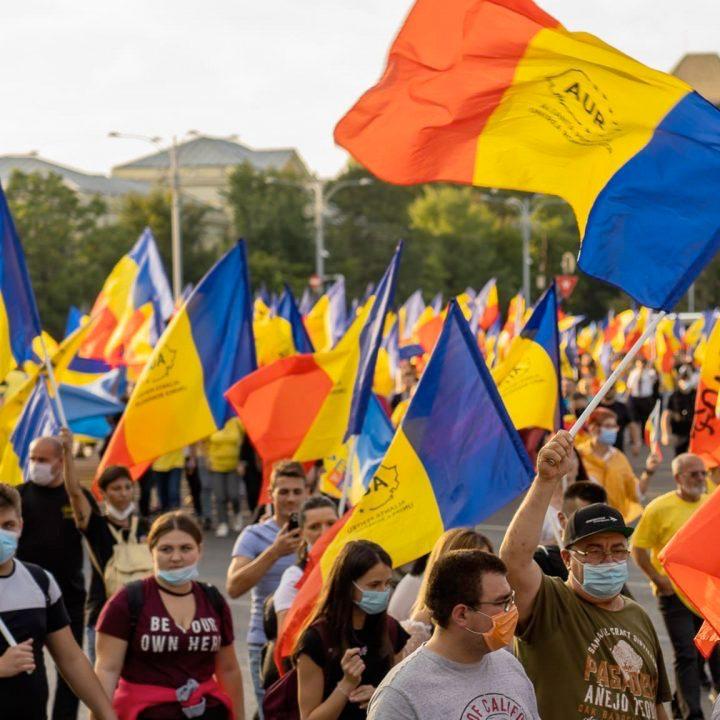44 years ago, Saudi Arabia experienced its first popular uprising in the predominantly Shia-region of Qatif.
Known as the "Muharram Uprising", it involved the active participation of the lesser-known Saudi Communist Party. 🧵
Known as the "Muharram Uprising", it involved the active participation of the lesser-known Saudi Communist Party. 🧵
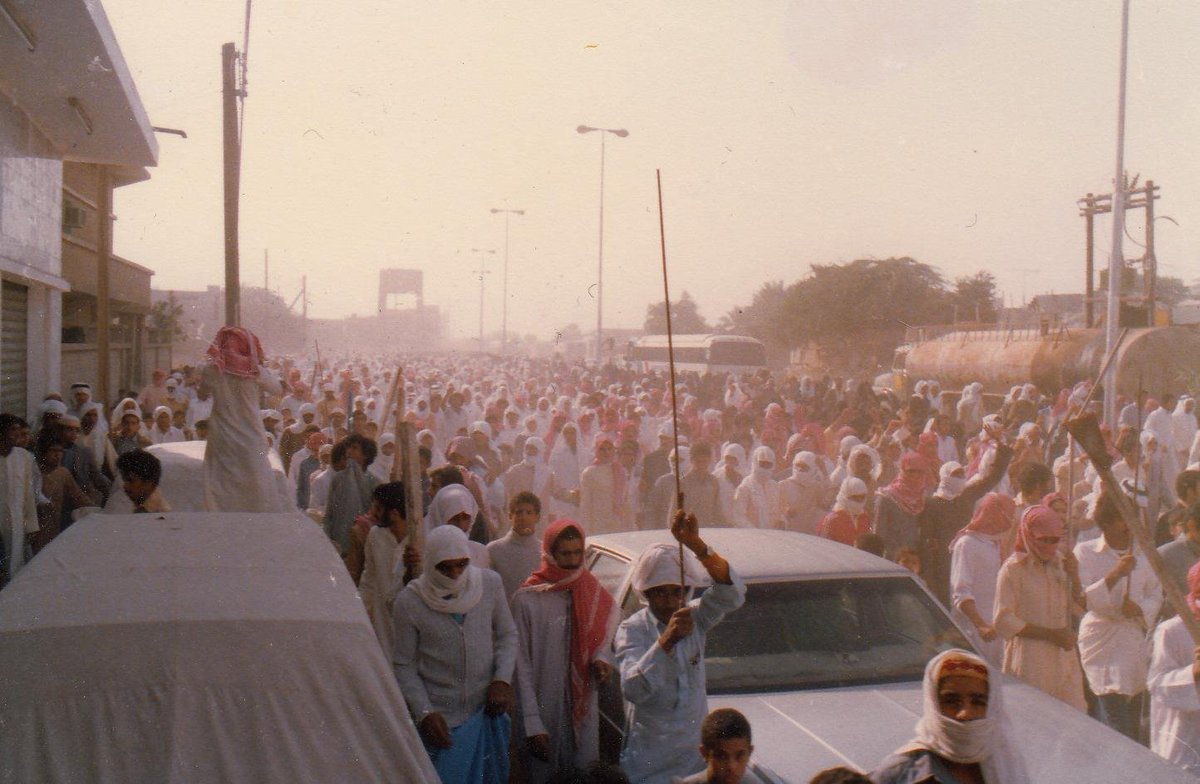
The Party traces itself back to the 1930s, where Marxist ideas were commonplace with migrant workers working for Saudi Arabia's oil industry in the east, inspiring their Saudi colleagues to form political campuses. 

These campuses would later be instrumental in organizing the 1953 Aramco strikes, demanding better working conditions, increased salaries and an end to discriminatory practices by the oil company's US administration. 

After a set of political setbacks and increased state repression, the Aramco workers later joined to form the National Liberation Front in 1955, inspired by likewise movements in the neighbouring country of Bahrain. 
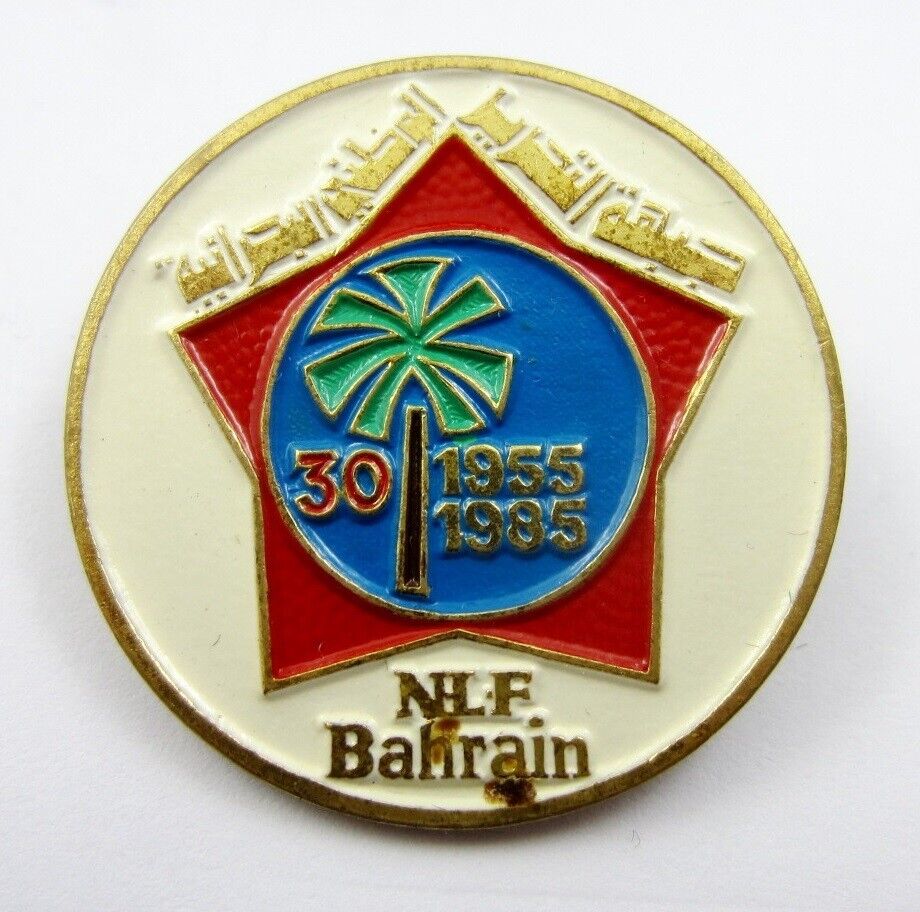
In 1961 the NLF issued its new party program calling for the abolition of the Saudi monarchy, total nationalization of the country's oil industry, foreign neutrality and an end to the American lease of Dhahran Air Base. 

NLF members made use of Shia gathering halls known as "husayniyyat" to spread its teachings but soon found that it had turned further left with the years.
In 1975 the NLF officially reorganized into the Saudi Communist Party.
In 1975 the NLF officially reorganized into the Saudi Communist Party.
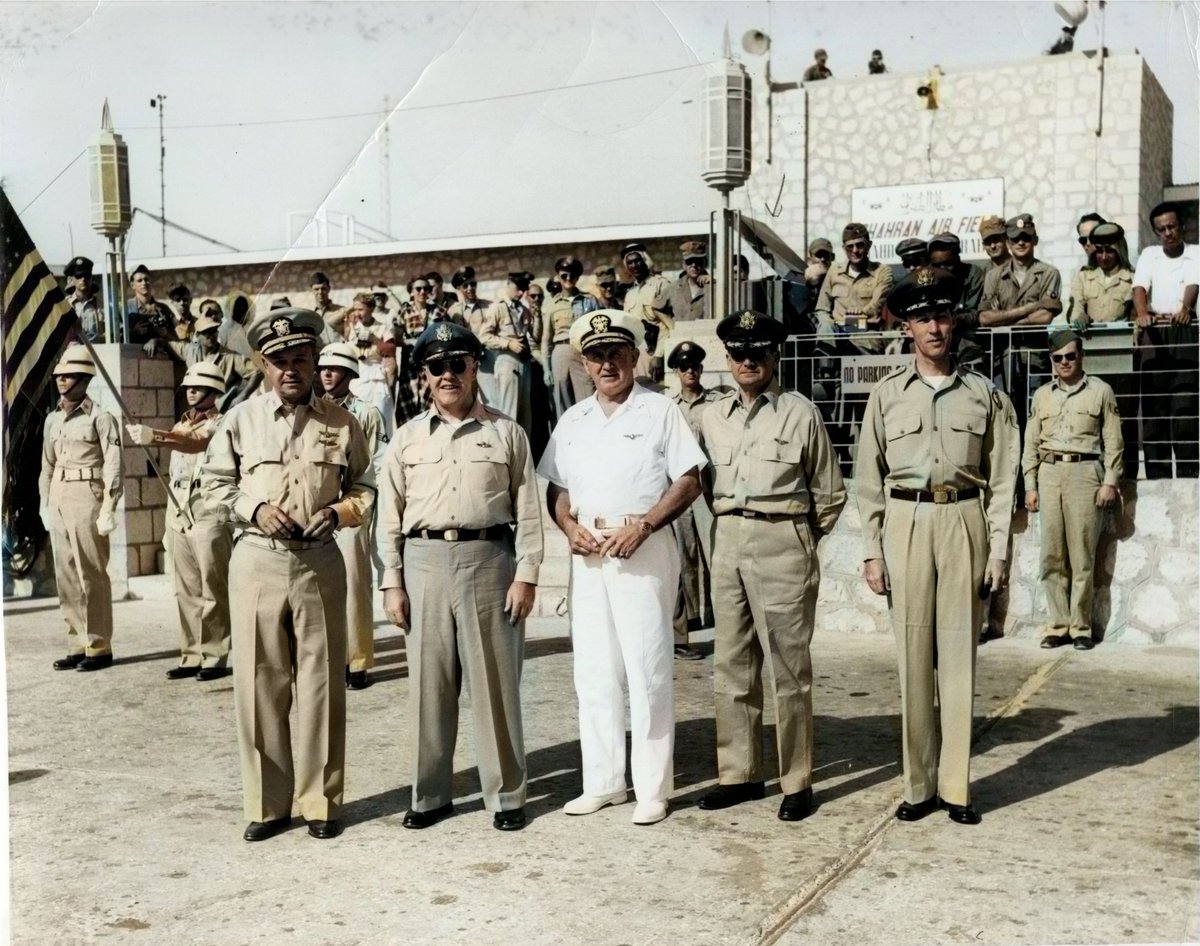
Following the increase of state repression in Saudia Arabia's east & of its predominantly Shia Muslim inhabitants, the Communist Party joined hands with other Shia organizations and turned to the streets on November 28th 1979. 
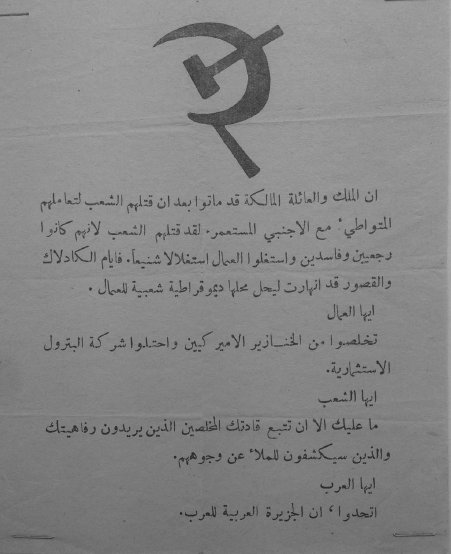
Inspired by the momentum generated by the Iranian Revolution, the Saudi Communists & Shias jointly demanded the abolition of the monarchy. They were met with heavy repression. 24 protesters were killed within five days. 
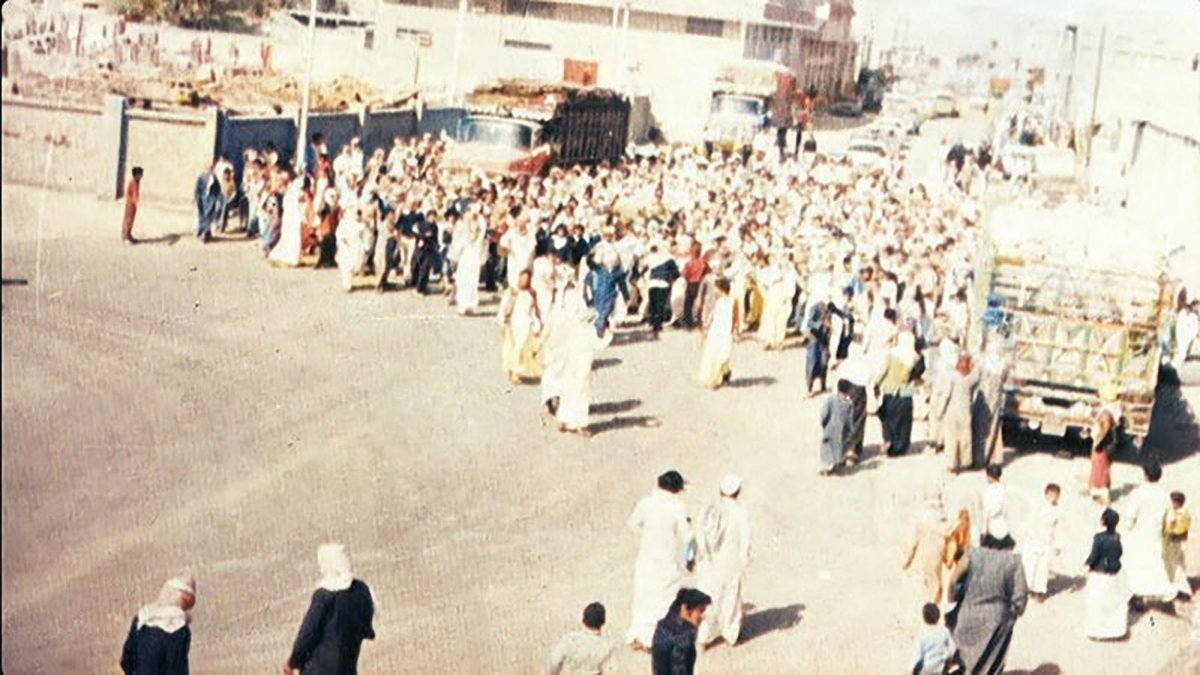
The uprising dissipated by early December 1979, with multiple arrested. Around 219 people were sentenced to death in the aftermath, and in 1991 the Saudi Communist Party dissolved with the fall of the Soviet Union. 

• • •
Missing some Tweet in this thread? You can try to
force a refresh

















